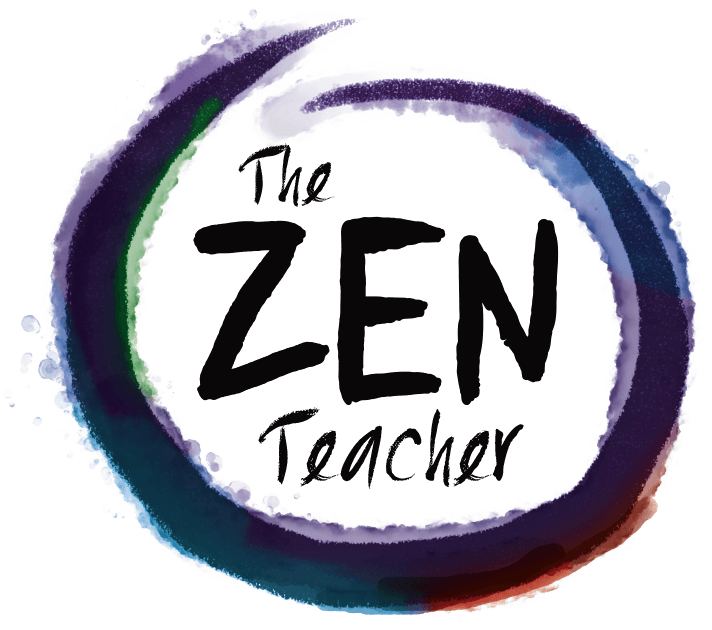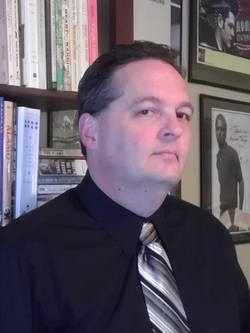If you would like to participate in THE ZEN TEACHER PROFILE please feel free to let me know by using the contact form on the website, which can be found here, or emailing me at teachingzen@gmail.com. I offer you twenty-two questions and you choose the three you’d like to answer.
I look forward to hearing from you.
(I’d like to thank Mr. Koehn for agreeing to be the first teacher profiled in an experiment that was sight unseen when he agreed to be featured.)
1. What role does non-judgment play in your classroom experience?
I’m a libertarian at heart, with some frightening conservative leanings when the mood hits. On the one hand, the libertarian in me says to let people be how they are, and to rise and fall on their own merits. The kind of ‘Old West’ reality to which such thinking eventually leads contains much my conservative friends would find familiar, and comfortable – you either make it, or you don’t. You handle it, or you don’t. Let those chips fall, brother!
With real people, though – especially when their ‘mine’ for a time – I tend to be much less certain and much more protective. I’ve been blessed with such a mix of the orthodox, the odd, and the broken over the past 15 years that I like to think whatever ‘judgement’ I may carry in the abstract is all but non-existent in the specific. I love my kids, whatever their quirks or crosses.
Mostly. On good days. Generally. Yes – always. Almost.
At the same time, I’m aware of how the system works, in school and in the world, and I want to help them find ways to be effective without sacrificing who they fundamentally are. I’ve told a number of kids in the past few years that their ideas are great – their passion is wonderful – but if they’re going to change the world (or at least claim enough success therein to have real control over their own lives), they’re going to have to find better ways to communicate or work compatibly with less interesting characters. They may wish to consider emphasizing or de-emphasizing certain elements of themselves – or to not.
Judgment, though? I have too much healthy fear of the universe – be it Karma or ‘reaping what we sow’ – to judge often or harshly. I have the luxury with High School Freshmen of focusing on the possibilities rather than “fixing problems.”
2. What role does detachment play in your classroom experience?
So much of what we read and hear pushes us to be MORE connected, MORE involved, MORE ‘plugged in’ to our kids.
That’s all well and good, but sometimes effective teaching, or real hearing, or useful understanding comes from the ability to separate yourself from the group – from the moment, even – and run through a quick mental ‘checklist’ to see where things stand. You know those sci-fi movie moments when everything freezes or slows dramatically so that we gain a perspective only possible by stepping out of the ‘reality’ of the involved characters?
It’s not always the same checklist, but there are a few common items I attempt to evaluate through moments of “detachment”…
Who’s on task or being productive? Who’s off-task? Who’s derailing others? Who just looks lost? What’s the best course with each of them, where they are? How will addressing one or two likely impact the whole?
What are the emotional dynamics of the room at the moment? What might I need to adjust to keep acceptable mojo?
Where are we time-wise, and what needs to be adjusted based on time remaining – in the period, the week, the semester?
How involved should I be with each group or each student at which stages in order for whatever we’re doing to be most effective? Should I push more? Back off? Help more, or less, or differently? Ask specific students to get involved in different ways?
It sounds so very scientific and impressive when I type it out like that, but it’s never so formal. It’s what we’re all trying to do most days throughout the day.
3. How do you recognize and act on intuition in your classroom experience?
In class, this means being aware of that inner voice suggesting various courses, even in mid-lesson or activity. I do stop and think about them a bit, compare them to experience, but when in doubt – go for it. Try the other thing. See what happens. Often it works; sometimes it doesn’t. From time to time I have to just tell my kids I went rogue and wasted an hour of their lives they’ll never get back.
Not as much as I used to, though. Is that progress?
Sometimes my gut takes me way past what I can actually defend. I’ll give the kid a dollar for lunch, even though I don’t do that. I’ll allow the hug from the crying girl, even though I definitely don’t do that. Occasionally I’ll send a card with my cell number home with a kid for mom or dad so we can talk at a time possible for them – need I explain why that’s normally a no-no?
But I’m tenured, so that gives me more freedom to follow my gut. I can be fired or disciplined, but it’s a pain for those in charge of making it happen, so that buys me some leeway. I don’t look to abuse that grace, but it does mean I act more out of hope or instinct than mere fear of reprisal like I used to do. I’m also older and grumpier, and care less each year whether anyone thinks I’m doing anything the right way – which sounds rather curmudgeonly (and is), but which also means I care less and less about what could go wrong and more and more about what might go right, or at least prove interesting. TZT
Dallas Koehn is a social studies teacher and educational consultant in Tulsa, Oklahoma. You can find his website Blue Cereal Education here or connect with h
im on Twitter here.

